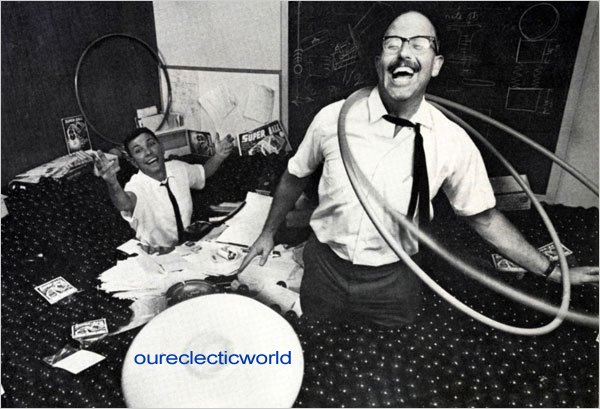From: http://www.troubling.info/vonnegut.html
Kurt Vonnegut
Eight rules for writing fiction:
1. Use the time of a total stranger in such a way that he or she will not feel the time was wasted.
2. Give the reader at least one character he or she can root for.
3. Every character should want something, even if it is only a glass of water.
4. Every sentence must do one of two things -- reveal character or advance the action.
5. Start as close to the end as possible.
6. Be a sadist. No matter how sweet and innocent your leading characters, make awful things happen to them -- in order that the reader may see what they are made of.
7. Write to please just one person. If you open a window and make love to the world, so to speak, your story will get pneumonia.
8. Give your readers as much information as possible as soon as possible. To heck with suspense. Readers should have such complete understanding of what is going on, where and why, that they could finish the story themselves, should cockroaches eat the last few pages.
-- Vonnegut, Kurt Vonnegut, Bagombo Snuff Box: Uncollected Short Fiction (New York: G.P. Putnam's Sons 1999), 9-10.
Tuesday, November 06, 2007
Subscribe to:
Post Comments (Atom)


1 comment:
This is straight from Wikipedia...but comes from some publication of Kerouac's, thought that it would be relevant here.
Kerouac's 30 tips for "spontaneous prose"...
Among the writings he (JACK KEROUAC) set down specifically about his Spontaneous Prose method, the most concise would be Belief and Technique for Modern Prose, a list of thirty "essentials."
1. Scribbled secret notebooks, and wild typewritten pages, for yr own joy
2. Submissive to everything, open, listening
3. Try never get drunk outside your own house
4. Be in love with your life
5. Something that you feel will find its own form
6. Be crazy dumbsaint of the mind
7. Blow as deep as you want to blow
8. Write what you want bottomless from bottom of the mind
9. The unspeakable visions of the individual
10. No time for poetry but exactly what is
11. Visionary tics shivering in the chest
12. In tranced fixation dreaming upon object before you
13. Remove literary, grammatical and syntactical inhibition
14. Like Proust be an old teahead of time
15. Telling the true story of the world in interior monolog
16. The jewel center of interest is the eye within the eye
17. Write in recollection and amazement for yrself
18. Work from pithy middle eye out, swimming in language sea
19. Accept loss forever
20. Believe in the holy contour of life
21. Struggle to sketch the flow that already exists intact in mind
22. Don't think of words when you stop but to see picture better
23. Keep track of every day the date emblazoned in yr morning
24. No fear or shame in the dignity of yr experience, language & knowledge
25. Write for the world to read and see yr exact pictures of it
26. Bookmovie is the movie in words, the visual American form
27. In praise of Character in the Bleak inhuman Loneliness
28. Composing wild, undisciplined, pure, coming in from under, crazier the better
29. You're a Genius all the time
30. Writer-Director of Earthly movies Sponsored & Angeled in Heaven
Some believed that at times Kerouac's writing technique did not produce lively or energetic prose. Truman Capote famously said about Kerouac's work, "That's not writing, it's typing." Despite such criticism, it should be kept in mind that what Kerouac said about writing and how he wrote are sometimes seen to be separate. According to Carolyn Cassady (and other people who knew him) he rewrote and rewrote. Some claim his own style was in no way spontaneous. However it should be taken into account that throughout most of the '50s, Kerouac was constantly trying to have his work published, and consequently he often revised and re-arranged manuscripts in an often futile attempt to interest publishers, as is clearly documented in his collected letters (which are in themselves wonderful examples of his style). The Subterraneans and Visions of Cody are possibly the best examples of Kerouac's free-flowing spontaneous prose method.
Hope you like this...I love reading it...don't know whether or not it helps me in my own writing...I like to think it does.
Post a Comment